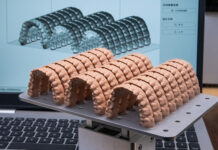
In the 21st century, the stigma surrounding menstruation is shocking. Yet, as parents of a girl, you should strive not to pass on the shame and stigma around this to your baby girl. The best way is to talk to them about periods soon, not the day they receive them. Getting her period for the first time can be scary if you do not. Moreover, when you talk to your girl about menstruation, she knows how to tackle it, regardless of whether they gets it in school, at camp, or during a sleepover. The basic way to prepare your child for menstruation is to let her know that it is normal and a sign of good health. Other ways to prepare the child for this life-altering moment are discussed below.
First, get your opinions in check.
If you always think or hear that periods are a curse or something to be ashamed of, work on your opinion. They are a sign of a healthy body and symbolize growing up. And that is what you must pass on to your child. Sure, most women feel sucky when they get their periods. But when telling your baby girl about menstruation, do not go with this version. Tell her that getting periods means her body is growing, changing for the better, and is healthy. It may hurt her, but there are ways to beat the discomfort. Moreover, talk about how the changes in her body during this time are normal.
Treat it as a developmental milestone.
When talking to your child, speak in a non-judgemental tone. When teaching her about menstruation, ensure you do not feel embarrassed. Treat it similarly to other developmental milestones that all kids go through. Menstruation is part of puberty and growing up, and you should treat it like that when talking to your child.
Tell her about all the hygiene products.
Menstruation is synonymous with pads, tampons, and menstrual cups. When you talk about menstruation, touch base on hygiene products, too. Explain how essential it is to be hygienic during menstruation. So, using the right products can help ease the whole process. Show her the entire process of using a pad or cup. Then let her decide which she prefers. For instance, you may prefer a tampon, but your child may feel more comfortable using a Moxie menstrual cup. Give her the low-down on all these and let her decide which is better for her in the long run. Also, talk about buying organic products with no chemicals or scents, as they are better for her.
Talk about managing the pain.
Everyone has period cramps and other symptoms, like nausea or bloating. Explain that experiencing them in small amounts is okay. But if the cramps or other issues are too much, she shouldn’t keep them to herself. Talking about extreme symptoms with a doctor helps to rule out other serious issues like PCOS or endometriosis. Also, tell her how to manage cramps, like using a hot water bottle or being physically active. Light activity like walking or stretching is good, even during menstruation.
Tell her how to track her periods.
Tracking your period is essential. It helps you stay prepared. Teach your daughter to track her period using an app or a basic calendar. Ask her to always keep a pad or menstrual cup with her two to three days before her predicted date. Tell her how certain situations, like stress or medication issues, can delay the periods or make them come earlier. Ask her to track all her symptoms, too.
Talk about the physical details.
There are a lot of rumors about what you should or shouldn’t do when on your period. Demystify this for your child. Tell them they can do anything physically, whether on their period or not. The trick is to listen to your body. If you feel tired, rest. If you feel okay, go about your work as usual. Also, talk about period blood. Girls think the amount of blood gushing out of the body is massive. It is only about three tablespoons. Not much! Knowing all these details helps them accept it as normal, not terrifying.
Be there for them.
The first time is challenging for all girls. It is normal but different. So, offer them chocolate or hot cocoa. Offer to drive them to school or let her take a day off to relax.
The sooner a girl child knows about menstruation and its significance, the better. It allows them to be vigilant and know when to ask for help. Teach her that it is a milestone and not an embarrassment. If you feel out of your depth, taking your girl child to a gynecologist or a family doctor is also a good idea.












